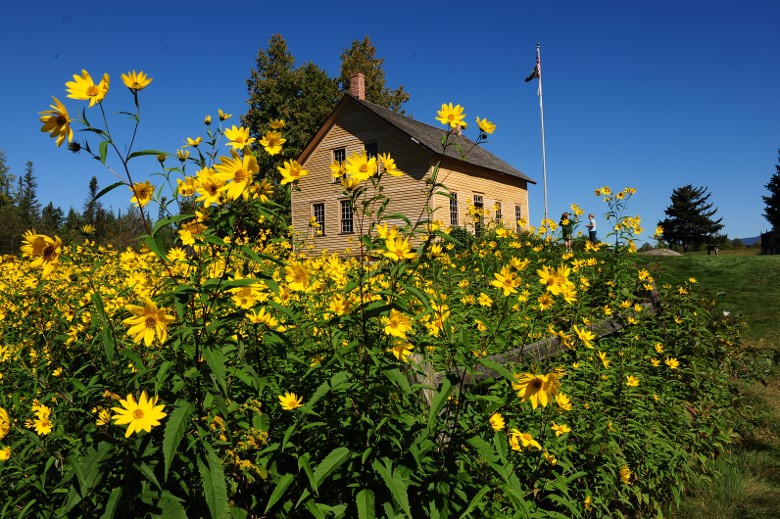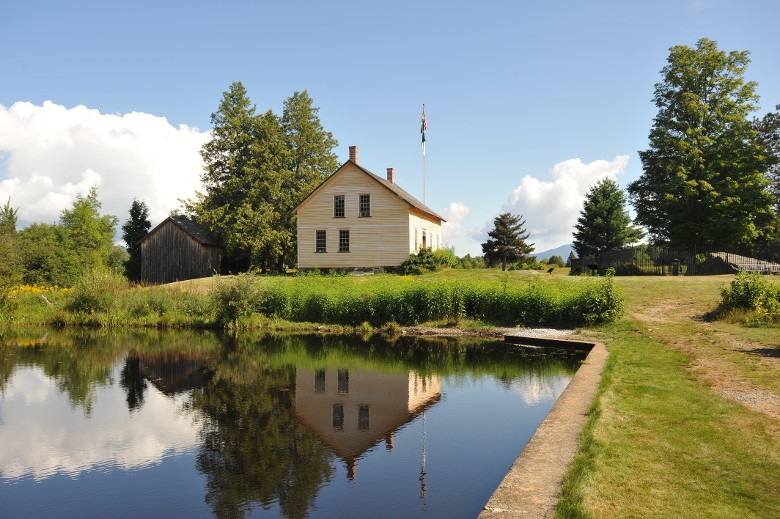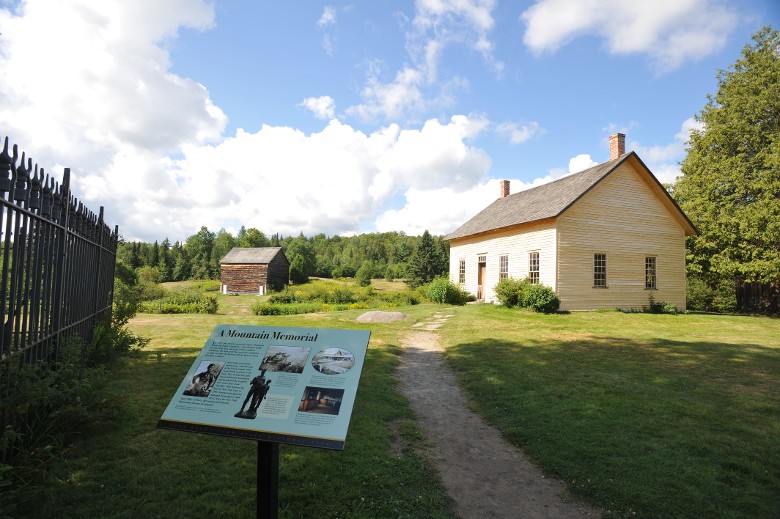Take a guided tour of the John Brown farmhouse, check out an old barn with a video of the Underground Railroad, and hike the network of trails at the John Brown Farm State Historic Site.
Visit the John Brown Farm State Historic Site
The 270-acre John Brown Farm State Historic Site includes the home and final resting place of abolitionist John Brown. He moved to North Elba near Lake Placid in 1849 to lead freed slaves in farming and the area was declared a National Historic Landmark in 1998.
Visitors can take a guided tour of the farmhouse, furnished with period belongings, for $2. The old barn on the property houses an exhibit that highlights 19th century New York abolitionists, and guests can watch an informative video here on the Underground Railroad.
The grounds and trails are open year-round for free during daylight hours for hiking and cross-country skiing, while the house is open from 10AM - 5PM Wednesday - Monday from May through October. Leashed dogs are allowed on the trails.
There are three trails: Potato Field Loop is a 1.8-mile trail that starts near the barn, Maple Grove Trail is a 0.3-mile loop through a maple forest, and the Ski Jump Trail is a 0.8-mile loop access by a small pond in between the old barn and the farm house.
The trails and property are an excellent place to spot or hear birds, check out wildflowers and flowering shrubs, and many butterflies and moths have been seen here as well.
About John Brown: An American Abolitionist
John Brown was a devoted abolitionist who sought to ignite rebellion among the slaves. His popularity began increasing in the late 1850s when he led attacks against pro-slavery settlers during the Bleeding Kansas conflicts. In October 1859, Brown and his followers captured prominent citizens in Harpers Ferry, West Virginia and took control of the federal armory and arsenal there. The plan was to arm rebellious slaves with the weapons they obtained and to help the slaves fight for their freedom.
Unfortunately, Brown was captured on October 18, imprisoned, tried and convicted of treason, and hanged on December 2, 1859. Six days after his death, Brown's body was laid to its final resting place in front of his home in North Elba, NY. Today, that property is the John Brown Farm State Historic Site.
Before he died, John Brown made a final prophecy - that the crimes of white men against slaves "will never be purged away but with blood." This prediction would be realized in the Civil War, which began 16 months after Brown's passing. Some historians believe that Brown's uprising and its aftermath helped expedite the country's entrance into the Civil War.
Photos provided.


